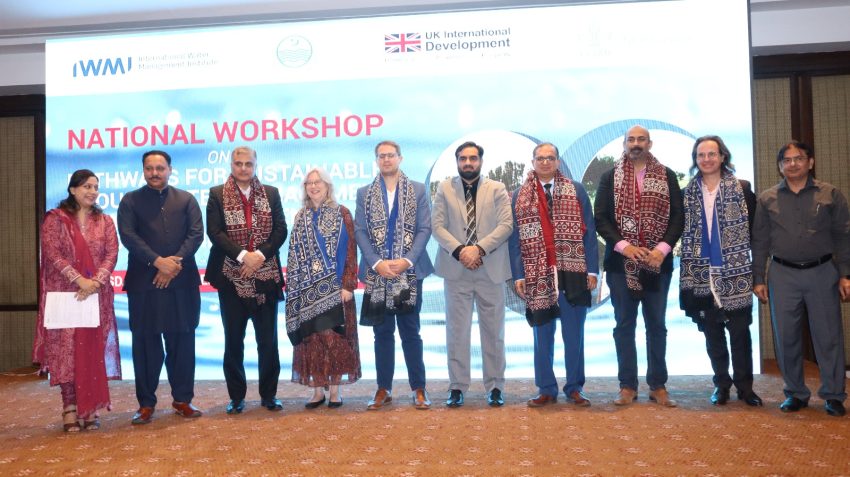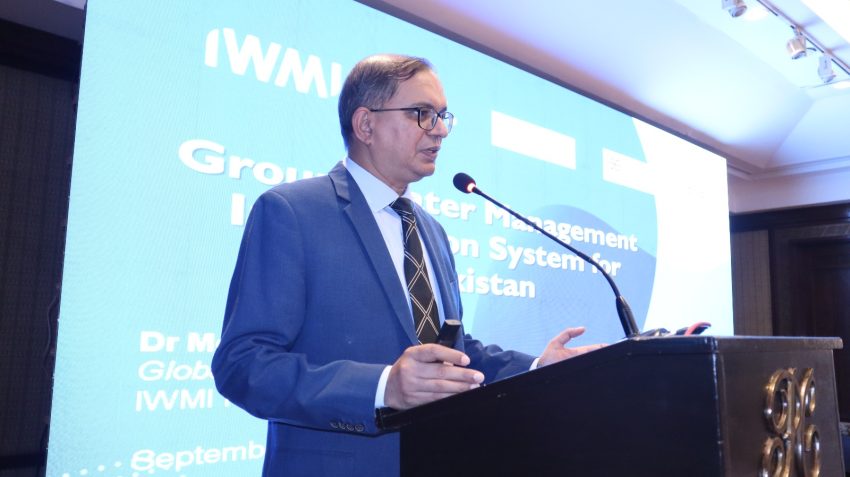LAHORE – The International Water Management Institute (IWMI) has launched the Groundwater Management Information System (GMIS) to address water scarcity affecting millions in Pakistan’s Punjab province.
Initially, the phased system was implemented as a pilot project in the Rahim Yar Khan and Okara districts, with plans for gradual expansion to other cities. IWMI Director of Water, Food, and Ecosystems Dr Mohsin Hafeez, said this at a national workshop on pathways for sustainable groundwater management in Pakistan, supported by FCDO, CGIAR, and the government of Punjab.
Citing GMIS data, Dr Hafeez stated that Pakistan is the fourth-largest user of groundwater worldwide. Sixty percent of the resource is allocated for agriculture and 90% for domestic use. However, current practices are not sustainable, leading to excessive depletion that negatively impacts groundwater.
He emphasised that the National Water Policy (2018) recognises the critical importance of regulating groundwater use and extraction and calls for recharge measures. However, provincial departments face challenges due to a lack of reliable, real-time data on groundwater quantity and quality. IWMI and the FCDO are working to address this gap.
Dr Mohsin said that Punjab is already experiencing unpredictable rainfall patterns, increasing dependence on groundwater and leading to its depletion. He demanded a comprehensive strategy to manage this growing pressure on water resources and preserve them for future generations.

He said that GMIS would help farmers and the government in developing water policies and better water management practices. According to Dr Mohsin, 61pc of farmers are open to adopting alternative farming methods, such as moving away from flood irrigation, but they require government support to make these changes.
He added that IWMI Pakistan aims to offer climate-smart interventions to guide farmers, industrialists, and urban water users in sustainable water management to address the region’s water scarcity.
Punjab Irrigation Secretary Dr Wasif Khursheed said collaboration between government and development departments is necessary to implement the Punjab Water Policy 2018. He said the government’s plan to introduce water pricing for tube wells to curb overuse. He claimed that strategic interventions by the government had saved six million acre-feet of water annually, though Punjab still faces a deficit of 12 million acre-feet, with only 53 million acre-feet available out of the required 65 million for the province’s 43 million acres of cropped area.
Dr Wasif said urgent groundwater recharge is required in Lahore, Multan, Lodhran, Pakpattan, and Okara, where depletion is severe.
At the workshop, Saeed Hassan, Deputy Head of FCDO at the British High Commission in Lahore, said that the water crisis cannot be addressed by the government alone, stating, “The government alone cannot tackle the water crisis; people must also do their part in saving the earth.”
Dr Ruth Meinzen-Dick, senior researcher at IFPRI, remarked that groundwater depletion is not just a Pakistani issue but also affects countries like the US. She suggested using scientific tools and nature-based solutions to address the problem, noting that local communities must be motivated and informed to help manage water resources effectively.
The workshop concluded with a group discussion facilitated by Dr Muhammad Ashraf, involving government officials from Balochistan, Khyber Pakhtunkhwa, Gilgit-Baltistan, Azad Jammu and Kashmir, and Sindh.














